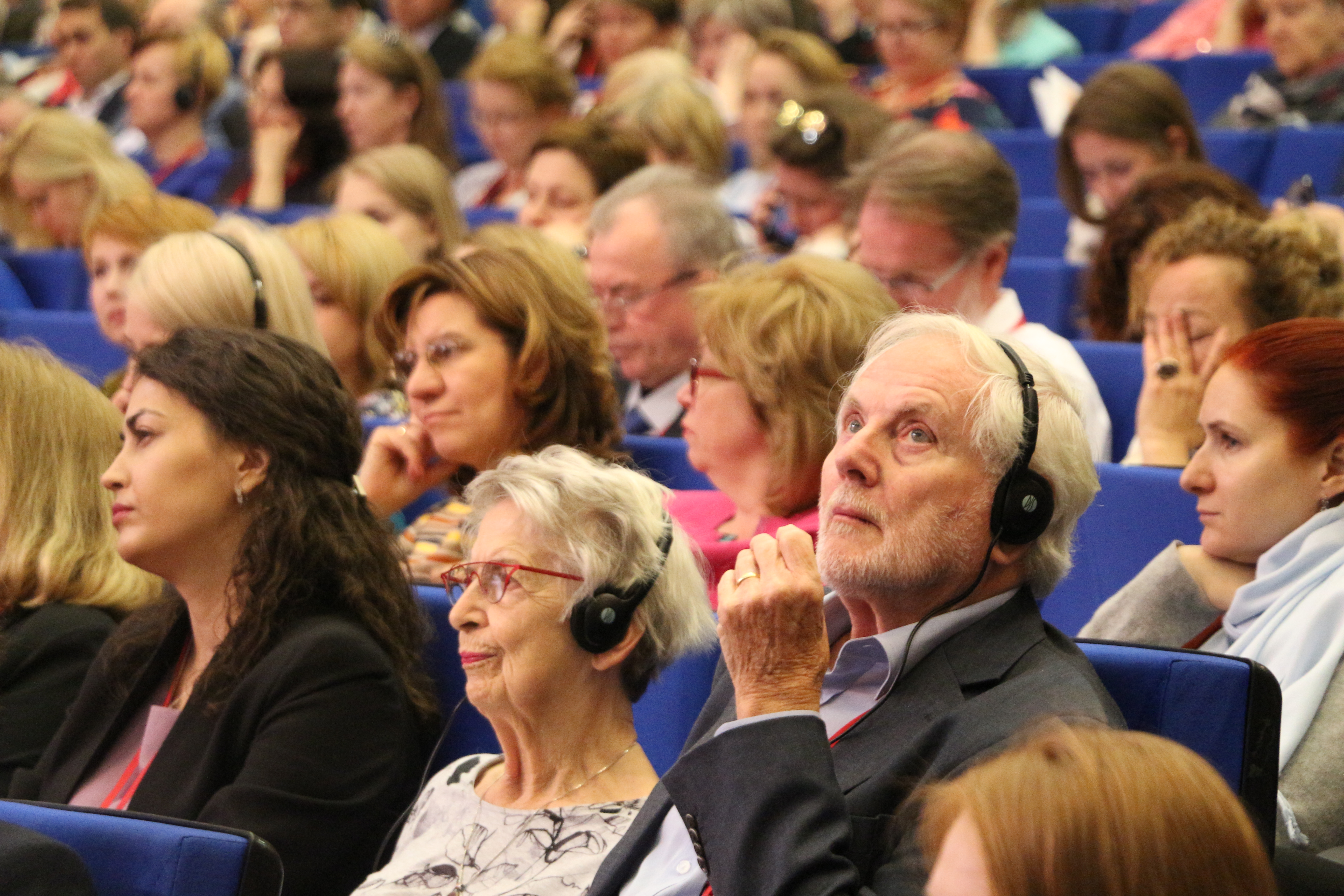
The International Forum on Teacher Education (IFTE) is the largest conference in the field of teacher education in Russia and the Commonwealth of Independent States. This year (22-24 May 2018) the Forum attracted more than 600 scholars representing 65 international and 93 Russian universities and research organizations.
IFTE aims to provide a platform for discussing various educational trends and reforms in the field of teacher education, for analyzing theoretical and practical issues, traditional and innovative approaches related to the modernization of teacher education.
The main distinguishing feature of the Forum is its practical orientation: scholars, educators, practitioners come to the Forum in order to discover new approaches and practical solutions that are currently being developed by the international community of educators. At the same time the importance of the Forum has been recognized and highlighted at the government level – representatives of the Ministry of Education and Science of the Russian Federation and the Government of the Republic of Tatarstan took part in the Forum this year. Scholars representing the European Educational Research Association (EERA), the Russian Academy of Sciences (RAS), the International Study Association on Teachers and Teaching (ISATT), and the Association for Teacher Education in Europe (ATEE) also participated in the Forum.
Ilshat Gafurov, the Rector of Kazan Federal University and the Head of the Tatarstan branch of the Russian Academy of Education, noted that despite its young age, the Forum has already become widely popular among educators. The Forum has been growing every year, 165 professionals took part in the Forum in 2015, 400 scholars (from 26 Russian and 38 international universities) presented their research in 2017, and almost 600 (from 93 Russian and 65 international universities) took part in the Forum this year (including researchers from Australia, Azerbaijan, Brazil, Bulgaria, Canada, China, Cuba, Germany, Greece, India, Italy, Jamaica, Kazakhstan, Kyrgyzstan, Malta, Moldova, Namibia, Poland, Portugal, Romania, Serbia, Slovenia, Sweden, Switzerland, Spain, Trinidad and Tobago, Turkey, the UK, the USA, and Uzbekistan).
This year the Forum was opened with a plenary session which was led by Ilshat Gafurov, the Rector of KFU (his presentation was on teacher education in non-pedagogical Russian universities), Maria Flores, the President of ISATT (her presentation was on teacher quality and professionalism), Aleksey Lubkov, the Rector of Moscow Pedagogical State University (his presentation was on teacher professionalism), Mourat Tchoshanov, Professor at the University of Texas at El Paso (his presentation was on the role of content knowledge in the ‘teacher-student’ link), Gil Noam, the Director of the PEAR Institute at Harvard University (his presentation was on extended learning as innovation in education), and Ian Menter, Emeritus Professor of Teacher Education at the University of Oxford (his presentation was on teachers’ professional knowledge).
350 papers on a range of various educational themes were presented at the Forum. Researchers shared their views and research results on the issues of modernization and development of the content of teacher education. They discussed questions related to a new type of teachers and their professional activities, integration of pedagogical and non-pedagogical universities that prepare new type of teachers. The problems of teachers’ continuing professional development and other essential topics related to teacher education were also touched upon at the symposiums and round tables.
A number of significant events such as international research and practice conferences ‘Integration of theory and practice in subject teacher training’, ‘Teachers as educators’, ‘Children’s deviance: prevention and intervention techniques’ were also organized during the Forum. This year IFTE 2018 was organized in cooperation with the International Study Association on Teachers and Teaching (ISATT) which held its Regional Conference 2018 ‘Professionalism of the teacher as a condition of the quality of education’ in Kazan. The discussions at the ISATT Conference contributed to the scientific dialogues about the methodological support of teacher training and the quality of education in accordance with the new educational standards and labor market. Scholars and educators from different countries had a great opportunity to learn from each other and share their professional experience, materials and techniques.
During the three days of the Forum 19 Russian and international key speakers working in the field of education gave their lectures; 14 symposiums, 90 sessions, 5 round tables, 4 plenary meetings, 4 international conferences, 2 workshops were held during the Forum.
The participants expressed a great interest in the ‘parade of pedagogical projects’ that was organized by the KFU scholars. Forum theatre on the topics ‘Children and the Internet: danger of suicide’, ‘’The odd’ child in the classroom’ also attracted a particular attention. Nick Rushby, co-editor in chief of the KFU scientific journal ‘Education and Self-Development’ ran a round table on the requirements to the scientific papers imposed by high-ranked international scientific journals. The president of the national association of editors-in-chief and publishers, Olga Kirillova, together with other editors-in-chief and members of editorial boards of international scientific journals indexed in WoS and Scopus, attended the round table.
The best papers presented at the Forum will be published in the scientific journals ‘Continuing pedagogical education: problems and solutions’, ‘Education and Self-Development’ and European Proceedings of Social and Behavioral Sciences (indexed in WoS).
Professor Ilshat Gafurov, the Rector of Kazan Federal University, emphasized the significance of the IV International forum on teacher education saying that today, when professionalism of the teacher is one of the crucial issues in the education systems of all countries, it is highly important to exchange views, experience, new ideas related to teaching and learning both on the regional and global levels. That is why such forums as IFTE are essential for the pedagogical community.